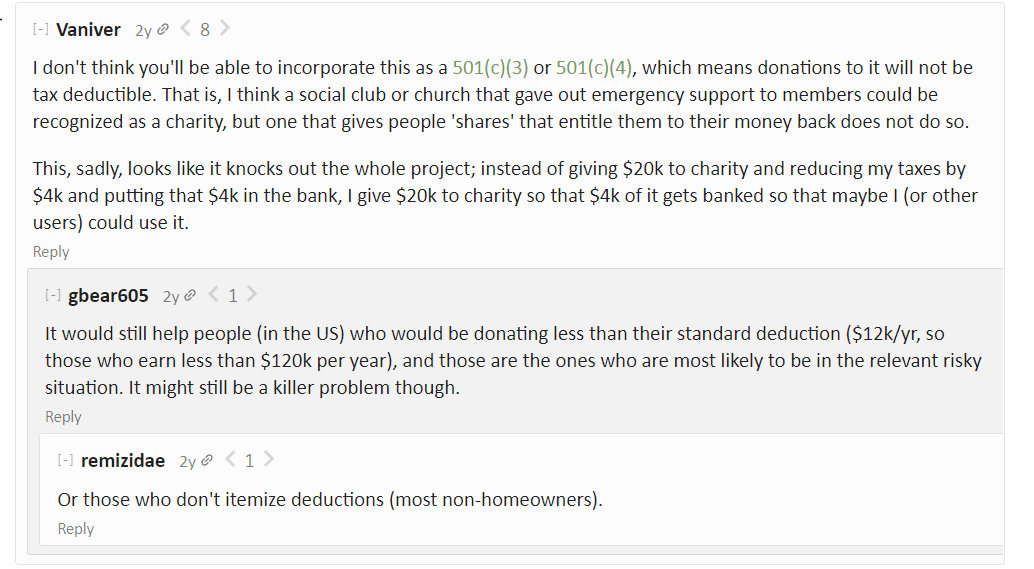Update: This project has been funded by an EA Funds grant. I am actively working on it-if you are interested in supporting this, send me a message.
I'm considering setting up a charity. Its goals are:
- To help effective altruists in financial need by giving back part of their donations
- To promote large donations to EA-related causes by providing donors with a safety net, minimizing risk
- To foster a healthy EA community
To achieve these goals, the charity will maintain an emergency fund. If effective altruists encounter financial hardship, they can send an application for hardship payment. This process will be similar to filing an insurance claim, but less strict. If the application is accepted, we'll pay out the lowest of three figures:
- The payout suggested by the hardship examiner
- 50% of the donor's lifetime donations to cost-effective charities
- 75,000 USD, or the equivalent amount in another currency
To prevent fraud, donors will have to get their charity to state to us that they'll never return any funds to the donor, and we'll need to see their donation receipts. We won't have to worry about fraud nearly as much as insurers, because our hardship payments max out at half of what recipients donated over their lifetime. Because of that, it is incredibly difficult to cook up a net-positive scheme involving our fund.
As far as I know, this type of charity does not exist yet, and there are a lot of things that still need to be figured out. More extensive discussion can be found here (me) and here (Alicorn). Note that both linked essays discuss a fund that only offers support to contributors (excluding direct donors). I no longer think that is desirable, and it will be very difficult to convince governments to grant such a construction tax-exempt status.


Some related idea might add value, but I'm quite skeptical of this idea. Almost all EAs would generally rather donate to an organization than to an "EA emergency fund," since the best opportunities to do good prima facie do not include giving money to other EAs (except in cases more like giving someone a grant, but we already have funds set up for grantmaking).
Also:
This seems to contradict "donors can only recoup half of what they originally donated."
Finally, if something like this fund existed, it wouldn't make sense for the default way to contribute to be by donating to GiveWell "through the fund" — it would be more efficient to separate donations to organizations from donations to this fund.
That said, there may be efficiency gains from a system that helped donors maintain financial security while donating more (as you and Alicorn noted on LessWrong).
I think I disagree with one specific thing: we want people to take risks in their careers so that large amounts of "good" are created. But then how can we compensate those people taking risks that benefit others? I am therefore in favor of decoupling taking large chari... (read more)